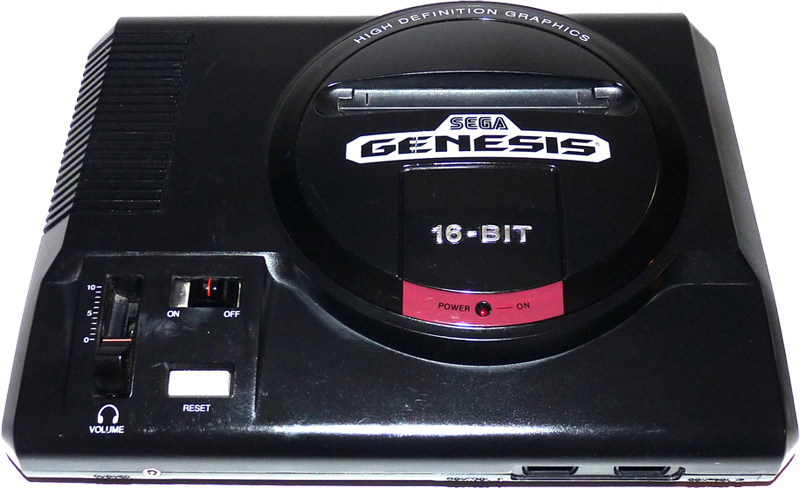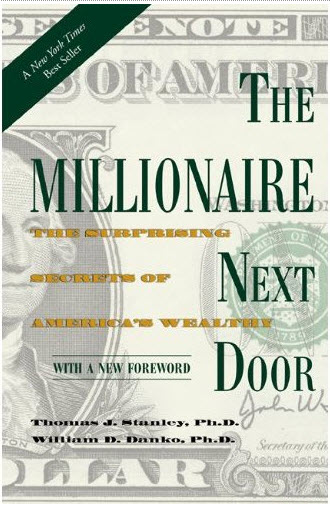My parents are recently retired millionaires.
Hopefully they don’t feel weird about me stating that fact on the internet.
I doubt anyone would be able to get to any of their millions, though, as it’s not like they have the lump sum in their freezer, or underneath their bed mattress.
When most of us think of being millionaires, we have a mental image of what that means.
A luxury automobile.
Fancy, $250 dinners.
Luxurious vacations.
A boat, a vacation home, and perhaps a Tag Heuer watch.

My wife and I are nearing our mid-30’s and we are hitting what are considered our “prime earning years”. It’s a streak of 15-20 years where your income level grows and your debts (hopefully) begin to decrease. If you are intelligent during these years, you will set yourself up to live comfortably for the rest of your life.
If you squander these years, it’s “Hello, my name is Jason. Welcome to Wal-Mart.”
That’s not exactly the way I would like to spend my retirement.
My parents, the millionaires, used to drive me full-on, bat-shit crazy when I was younger.
They were incredibly frugal.
They held fast to a simple motto:
If you have a material possession that serves a purpose, and it works the way it was designed to work, you do not need another one.
A few examples of this in action:
- My Dad bought me a Nintendo when they came out in 1985. When the Sega Genesis came out and (of course) I wanted one, he said no – my Nintendo still worked just fine.
- My Dad bought me a cassette player boombox for Christmas in 4th grade. When CD players came out a few years later, he refused to buy me one – my cassette player still worked just fine.
- If I wanted new shoes, my old shoes needed to have worn out treads, holes in the toes or soles, or have broken velcro straps. You could not buy shoes in our family simply because you wanted new shoes.
This was frustrating to a status driven middle school kid. Couple that with the fact that I attended a private school and I had some pretty wealthy friends, and I felt insecure and inadequate.
My friends all had Jordans and I was shopping at the outlet malls.

First World Problems, right?
If I wanted to make a purchase that was deemed out of the ordinary, I had exactly two options to secure the item:
- Wait for Christmas or a Birthday.
- Save my allowance.
On multiple occasions, I had to figure out how to make money, and also how to save the money that I made.
The Sega Genesis example above illustrated this.
When the Sega came out, it cost $149 plus tax. It came with one controller and the Sonic The Hedgehog game.
My allowance at the time was $12 per week – which paid out twice per month on my Dad’s payday.
I also had 2 different neighborhood grass cutting accounts – which paid me $10 apiece per cutting.
I took a piece of looseleaf paper and tracked how much money I was making each week. At $32 per week of income from the allowance and the grass cutting, it would take me about 5 weeks to build up the funds necessary to purchase the Sega console.
5 weeks isn’t an exceptionally long time. Sure, for a 12 year old, it seems longer, but it still isn’t anything which is unrealistic.
However, this meant that in order to purchase my Sega in 5 weeks, I wouldn’t be able to buy anything else for over a month.
It was also during the summer time. That meant no fast food stops, no ice cream stands, no riding my bike to the corner store for candy and pop.
Nothing.
It meant working, eating all meals at home, and saving every cent that came my way.
I got my Sega in 5 weeks.
It was incredibly satisfying.

I was able to obtain some rather large purchases this way.
Video games, clothing, stereo systems, etc.
Although as a child, it frustrated me, I now see that my Dad was teaching me a multi-faceted lesson.
Lesson #1:
If you want to have great wealth one day,
you can’t make every purchase you desire.
But this lesson pales in comparison to the bigger picture. The best lesson my Dad taught me:
Lesson #2:
If you want to achieve something of great value,
you will need to learn to delay gratification.
It is this lesson, the lesson of delaying your comfort to sacrifice for your ultimate goal, which has allowed my parents to retire with millions in the bank.
It’s this lesson that has separated them from “normal” people.
Separating The “Normal” From The Extraordinary
I know a lot of people that spend more money than they should.
I think we all do.
You know the type. They have brand new cars, expensive “toys”, and post pictures on social media as proof that they live an extravagant lifestyle.
Ask these people if they want to spend the weekend in Vegas, however, and they need to wait until their tax returns kick in.
There is nothing special or interesting about a person who flashes wealth when they have none.
Didn’t the Cash Money crew make a song about this phenomenon?
“Can’t pay my rent, cause all my money’s spent……….”
On the flip side of this, I know a few people who have accumulated prodigious amounts of wealth – many times more than my parents were able to accumulate – who are some of the simplest people you’ll ever met.
Their enormous sums of money remain unseen to the public. Nothing about them screams “wealth”. They go about their business, with a submerged iceberg of loot you wouldn’t know about if you didn’t know them personally.
Those are the people I find intriguing.
Not because I think money in and of itself is “cool”.
I think freedom is “cool”. I think peace of mind is “cool”. I think living your life on your own terms is “cool”.
Often times, money allows you to buy your own freedom, peace of mind, and lifestyle. So, in that sense, sure, having money is “cool”.
The reason I find these people interesting, is that their lifestyle and appearance is proof that they know how to delay gratification.
Delaying gratification takes discipline, reflection, and a different outlook on life.

If you haven’t read this book, you should.
(Here’s a link – it’s an exceptional read: The Millionaire Next Door: The Surprising Secrets of America’s Wealthy)
Key takeaways:
- Most millionaires in America are small business owners.
- Most millionaires in America purchase used cars over new cars.
- Most millionaires in America have no debt and purchase everything in cash.
- Most millionaires in America save diligently and minimize monthly expenses.
- Most millionaires in America are no different than you or me.
- In fact, they are likely right next door and you have no clue.
- The only REAL difference between them and us is that they have millions.
Let’s take a quiz:
You’re on a diet. You’re really hungry, but you have no more calories left for the day.
It’s 6 pm, and you don’t go to bed until 10.
What do you do?
Do you:
- Drink a large water or a diet pop and hope the hunger subsides?
- Snack on low calorie veggies to fill you up?
- Pop an appetite suppressant pill?
- Begin cleaning your house to get your mind off of the hunger?
- Re-frame the negative situation into a positive one?
- Check-in with your feelings and emotions and reinvest in your dedication and commitment?
- Email your online coach and see if it’s possible to tinker with your fat-loss plan?
- Grab the nearest bag of chips or pint of Ben and Jerry’s. Screw it, you’ve been good all week.
Did you pick 1-7?
Some do. Not all, but some.
There’s a bunch of people out there who refuse to even attempt 1-7. They go straight to number 8 every time without even trying to beat their hunger with an appropriate strategy. **Side note – I would never recommend #3. Just wanted to be sure you understand that.
If we want to accomplish great things, we will always need to make sacrifices in the moment.
Would you like to lose 25 pounds? Get a beach-ready body?
Then you’re going to need to accept a bit of hunger and accept the uncomfortable feeling that dieting brings. Maybe you’ll need to forgo your normal comfort foods. Perhaps you’ll have to cut back on social events and drinking.
Would you like to gain muscle? Start to “look like you lift”?
Then you’re going to need to train more frequently and with more volume. You’ll have to push yourself close to failure and overload the bar at every session. You’ll have to get plenty of sleep and eat more food than you’re used to. You’ll likely gain fat as a result and in the future, you’re going to need to diet that fat off.
Would you like to start your own business? Start living your life on your own terms?
You’re going to have to work hard – harder than you’ve ever worked before. You’re going to have to accept the fact that running your own business is infinitely more stressful than working for “the man”. You’re going to have to keep plugging through sluggish sales, long days, working on the weekends, and a work-life balance that is much more “work” than “life”.
Would you like to be a millionaire one day? Even though you make far less than that?
You’re going to have to life frugally and max out every investment dollar you can. You’ll have to deny yourself “feel good” purchases. You’ll have to continue to fight lifestyle bloat, and only buy items which are necessary. This may mean you’ll watch your friends have nicer cars, take more vacations, and have more “fun” with their money.
But it also means that in 25 years, when your friends are waiting until social security kicks in, you’ll be smiling ear to ear.
Living out your golden years with a fixed income watching mesothelioma infomercials sounds like a shitty way to ride out your existence.
Daoism: The Yin and Yang Of Life
Daoism is an ancient Chinese and Buddhist principle commonly referred to as “yin-and-yang”.
It’s loosely translated as “the way” or “the path”.
Its beliefs are simple. For everything good, there is also bad. And for everything bad, there is also good.
How to apply this to your life?
Accept the pain and embrace its challenge.
This may mean you tell your own children they must save up their money to make purchases.
The bad: They will protest, whine and cry.
The good: They will learn the value of the dollar, and you will have more money in your pocket.
This may mean you will need to deal with some hunger late at night when dieting.
The bad: You’ll be hungry.
The good: You will stay on point with your diet, have better results, and learn the value of discipline.
This may mean you will keep driving your 15 year old car instead of purchasing a shiny, new ride.
The bad: Your car still has a cassette player, and you don’t have any cassettes.
The good: No car payment, and you don’t care when the runaway shopping cart smashes into you at Kroger.
Be Your Future
I understand what I’m telling you isn’t the easiest task.
It’s painful to tell your kids no.
It’s no fun to keep driving your beater around town.
It’s a bummer to have to pass on nice vacations.
When you’re faced with these decisions, ask yourself a simple question:
What would “future me” say to me right now?
Likely, you’ll realize that the “future you” would be happy you made a small sacrifice.
The “future you” will be elated that they never have to worry about finances ever again.
If you always make decisions based on how the “future you” would view your choices, there’s an excellent chance those choices will improve tremendously.
Yours in true health,
Jason
